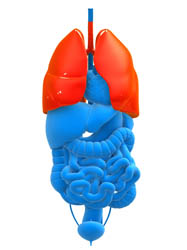Killing cancer by treating inflammation
Around 15 % of all malignant cancers are caused from chronic inflammation. Examples of these include hepatocellular carcinoma (HCC) due to hepatitis B or hepatitis C virus, colorectal cancers from ulcerative colitis and lung cancer from chemical irritants. Studies have found that inflammation from chronic exposure to toxic agents, irritants or autoimmune reactions has been linked to malignant cancers with high fatality. INFLA-CARE is a collaborative project funded by the EU to understand the molecular mechanisms behind inflammation-driven cancer. Project researchers used pre-clinical mouse models to understand tumour formation and progression at the cellular level on exposure to chronic inflammation. They have successfully developed mouse models to mimic cancers resulting from inflammation and have thus been able to characterise the response of immune cells to cancer metastasis and therapy. The roles of cell-signalling molecules such as interleukin 1a (IL1a) and IL1b in colitis and colitis-associated colon cancer, deoxyribonucleic acid (DNA) damage response (DDR) and DDR-related molecular pathways were defined. The scientists are also assessing the involvement of signalling networks and lymphocytic populations in primary human tumours and cell lines in human cancer associated with chronic inflammation. Research outcomes will be used to curtail cellular pathways involved in inflammation-driven cancer and to bolster immune responses that prevent cancer formation or improve treatment response. Promising modalities could be optimised and tested for use in combination with conventional cancer treatment methods. Research findings to date have been disseminated through summer schools, seminars, conferences, lectures and publications. Currently, treatment options for inflammation-driven cancers are limited and ineffective resulting in high mortality and morbidity. Findings from INFLA-CARE research may result in breakthroughs that will benefit such cancer patients and save lives.







